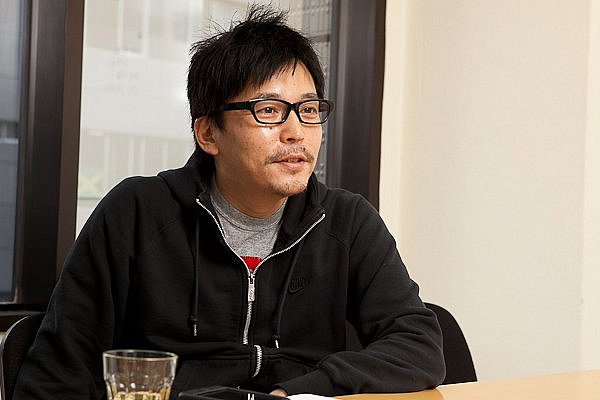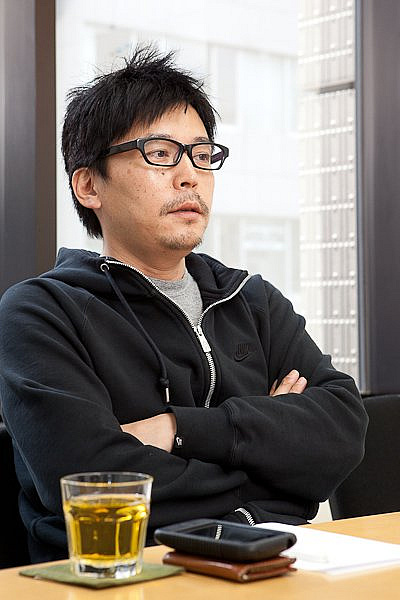Dream’s Fight for Japan, for Survival
Question Time
Tony Loiseleur May 21, 2011

Dream Event Producer Keiichi Sasahara feels a duty to Japanese
MMA. | Taro Irei/Sherdog.com
TOKYO -- The offices of Dream parent company Real Entertainment occupy an otherwise unassuming building in a bustling part of Tokyo’s hip Shibuya ward. The walls are starkly white, clean and devoid of event posters or any other kind of fight-related memorabilia one would normally expect as adornment. It has an air of Spartan efficiency.
The office’s rows of fluorescent lights remain dim. The front door and wall-to-wall windows are wedged open, letting in the breeze and the regular sounds of one of Tokyo’s busiest trains, the Yamanote line. Like most businesses in the Kanto region, Real Entertainment is doing its part to conserve energy supplies by shutting off its lights and air-conditioning. It is the immediate legacy of the massive, magnitude-nine earthquake and tsunami that rocked Japan’s Tohoku region on March 11.
Advertisement
Dream Event Producer Keiichi Sasahara looks out of place in this garb. With this change into civilian clothing, however, he is almost a different person -- one given to thoughtfulness and an unexpected candidness that most corporate figures tend to avoid.
If anything, it is perhaps the best version of Sasahara to approach
when discussing the recent troubles that have plagued Japan’s
biggest promoters. Between rumors of complete collapse and repeated
allegations of non-payment by fighters, it is no secret that
Japan’s kakutogi industry has seen better days. Confidence in its
once-mighty product is at an all-time low, as fighters, fans, and
pundits have shifted focus to the burgeoning UFC not only as the
pinnacle of the sport but as MMA’s most reliable business.
Japan’s latest red flag comes by way of current Strikeforce lightweight Gesias Cavalcante, who in an April interview with Brazilian outlet Tatame stated he had not yet been paid for his July 2010 bout against Katsunori Kikuno. Rather than deflect or minimize the severity of the situation, a soft-spoken and apologetic Sasahara openly claims responsibility for it.

T.
Irei
Admissions do not come easily
for Dream's Keiichi Sasahara.
These admissions do not come easily for Sasahara. Still guarded insofar as what he can say while maintaining corporate propriety, Sasahara is not combatively defensive. He neatly stacks his phone on top of his wallet on the desk, then bears the questions-slash-accusations in silence with his arms tightly crossed, head nodding as he confirms and claims responsibility for the troubles experienced by both Fighting and Entertainment Group and Real.
“Part of the difficulty is that, for example, I cannot speak wholly on FEG’s behalf to give the exact reasons why our fighters are being paid late,” he explains. “Our position [at Real Entertainment] is one in which we have an agreement with FEG to help promote and produce [MMA] events. We can’t say exactly what the financial problems are, but as you
already know, we clearly have had difficulties recently.”
The statement is a surprising one, and one which conspiracy theorists might point to as evidence toward a rumored rift between FEG and Real. However, Sasahara asserts that there is no such division, claiming full support for his promotional partners.
“Honestly, everyone assumes that [FEG and Real] fight and that we are going to split up,” he says with a chuckle. “I believe we’ll be together in business for a long time. We want to stay with FEG to help them rebuild and become financially stable. Once we are stable [and] settle debts with our fighters, foreign fighters can once again play a major role in shaping our product.”
The Sky is Falling
To date, it’s primarily been non-Japanese fighters publicly levying complaints against the promoting duo of FEG and Real. Virtually no criticism has come from Japanese fighters, which Sasahara says is due to a difference in culture and geographical proximity.
“Fighters like ‘JZ’ have every right to demand payment, but it’s also not easy for us to tell them that it’s taking a lot of time because we don’t have the money yet. We really have no excuse otherwise, and, of course, we apologize for that,” Sasahara says.
“For Japanese fighters, however, they’re part of a local network in which information travels quickly and we can communicate with them easier,” he continues. “They can get in touch with us much quicker, and we’re able to explain things to them faster and easier than foreign fighters.”
"If, for example, they ask us about late pay, it goes through their management to us, and then it takes time to come up with a reply and relay it back through their management," he continues. "If it doesn’t come soon enough however, they sometimes choose not to wait and make it public before we can get back to them."
Sasahara’s answer does not address the strange and often worrying idiosyncrasy of Japanese businesses shying away from publicly addressing their troubles. The sluggish and otherwise diffident reaction of Japanese technology giant Sony to intrusions into its service networks is a recent telling example outside of the fight world. Sony only broke its silence a week after the intrusion to notify the public that the personal information of millions of their consumers had been compromised.
Similarly, both Dream and K-1 promoters have been mum in admitting payment troubles. Despite the unexpected consent to this particular interview, media requests for comment often go unanswered when a fighter airs his grievances with either Real or FEG. As a result, criticism, handwringing and speculation over the state of kakutogi in Western MMA media has naturally intensified.
Somewhat surprisingly, Sasahara more or less agrees with the bulk of coverage Japanese MMA has been receiving from Western media, regardless of the content or consequences.
“I think they’re right. Compared to Japanese media, the Western media doesn’t have to hesitate to write anything for fear of criticism, so I think they’re a little easier to understand because of that. But still, I don’t really have any particular feelings toward it,” he says.
It seems like a backhanded compliment: Japanese promoters tend to view Western media as blunt, bullheaded and tactless. On the subject of whether this coverage amounts to rumors and speculation, however, Sasahara champions an even-handed approach in which ignoring such reports is the most productive course of action.
“I’m not really concerned about them. I mean, I notice them, but our issues are our issues. I don’t really care about rumors or things that other people write about us that aren’t true,” he says. “Sometimes, I do want to fight back and say how certain things are untrue, but it’s no use and isn’t productive. Rumors will always exist, in every facet of life. Why waste of energy to fight them when we could be doing something productive?”
Already embattled by the years-long global recession, promoters like FEG and Real Entertainment have struggled to maintain financial viability in the post-“kakutogi boom” years. Though he is unable to explain the specifics, the recession has led to business and PR consequences that Sasahara uncomfortably but openly admits to and expresses regret for. Topping this all off is the fact that both promoters must now also cope with the repercussions of March 11’s massive dual disasters. Japan has since become a different place, where ascetic conservatism has become a daily virtue such that small luxuries like attending an MMA event might otherwise be passed up.
However, one of the key observations that the West has made about post-March 11 Japan is the Japanese ability to calmly cope with the situation to rebuild. Like most curious facets of the culture here, this sober but impressive perseverance has been attributed to an unquantifiable “Japanese spirit.”
At its worst, it can be fatalistic, as in the case of their frustrating media silence in the face of a flagging business. At its best, it is an indomitable force, neatly summed up in simple but robust Japanese words like “ganbaru,” meaning “to do one’s best.”
If anything, Sasahara and company are products of their environment. In spite of media reports claiming the sky is falling on the kakutogi industry, they continue to promote events in spite of acknowledged problems; to do otherwise is to entertain an option that simply is not in their DNA.
Continue Reading » Fighting for Japan
Related Articles







